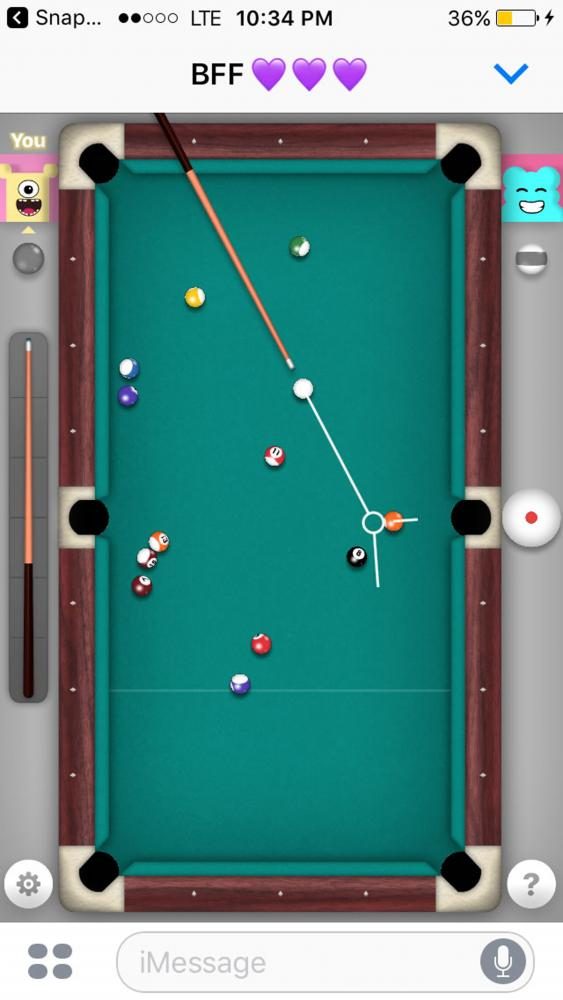8-ball, basketball, checkers, oh my!
GamePigeon phenomena hits the region, but how long will player satisfaction last?
iPhone users everywhere are obsessed with the latest updates from Apple. One update that stands above the rest, though, is the latest installment of GamePigeon in iMessage. Users can now compete in different games with each other while also texting at the same time.
The games themselves range from virtual sports such as basketball and mini golf to strategy games like mancala, anagrams, word hunt and chess. The GamePigeon fever has struck the region, with students competing against each other during all hours. It seems like 8-ball is the most popular, seeing as it was one of the original games when the addition was released.
To have the most recently updated version of the games, version 1.0.19, iPhone users must have IOS 10.0 or later, but this standard doesn’t stand in the way for the avid gamers.
Junior Madison Dosch is a regular player, mainly of 8-ball.
“I think the games are just a really fun way to pass time,” Dosch said. “I also like them a lot because if you aren’t sure what to say to someone, you can just send them a GamePigeon; it keeps people interested in texting you.”
Though with any kind of competition, there can be some tension. Sports matches, board games, virtual games and so much more have the possibilities for creating pressure or stress. While friendships may or may not be broken depending on the outcome of a game, a rematch almost always comes after the fight.
“Sometimes, I feel that people can take it too seriously and it causes tension, but in most cases I’ve seen, it’s just a playful, fun way to pass time,” Dosch said.
Outside of Freedom’s walls, the GamePigeon fever has spread to other districts like Beaver, for example. Eighth-grader Charlie Higgs from Beaver has some friends who take the game a bit too seriously for his liking.
“I’ll say [to my friends] ‘I could beat you in 8-ball,’ and they get so offended and I’ll beat them [and] then they won’t talk to me. It’s just a game,” Higgs said.
One of the questions is, ‘Why do we get so competitive with these games?” According to The Atlantic, in a survey of faculty, students and staff at the Harvard School of Public Health, nearly half of the respondents said that they’d “prefer to live in a world where the average salary was $25,000 and they earned $50,000,than one where they earned $100,000 but the average was $200,000.”
This mindset is not irrational, as it comes from the Easterlin paradox. In 1974, economist Richard Easterlin found that, although a country’s richer citizens are happier than its poorer citizens, when the overall country becomes richer, their citizens don’t become happier.
This can be related to the games in such a way that the richer citizens in the paradox are comparable to the winners of the game. The more that they win, which is comparable to the country getting richer, they don’t get happier.
From school to school, the GamePigeon craze has hit, but how long will it last if this paradox is real? If the theoretical “rich citizens” don’t increase their happiness while the country gets richer, then how long will it take for the winners to realize that their happiness isn’t increasing while they keep winning?
For now, though, the games seem to be sticking around for a little while longer. Updates will be downloaded, wins and losses will occur and iPhone users everywhere can continue their competitions with each other.



